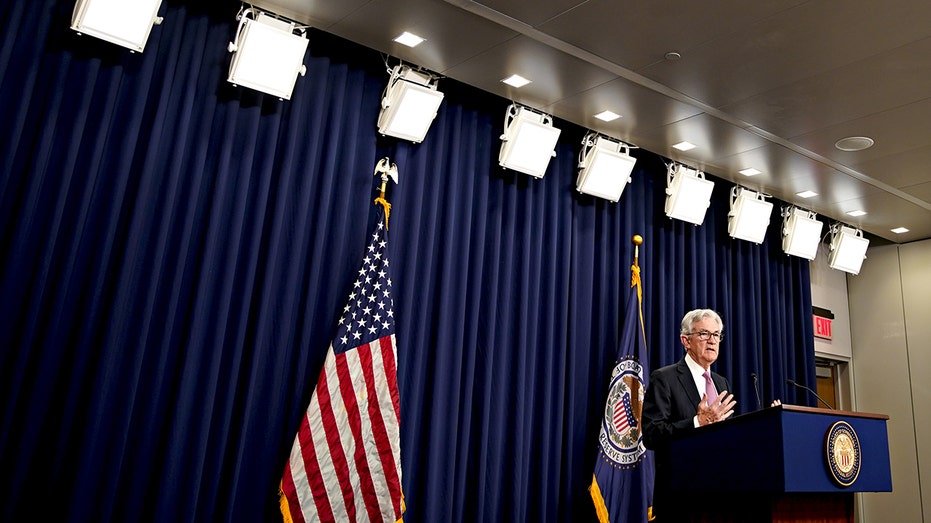Fed's preferred inflation gauge eases in July but remains near 40-year high
Economists expected inflation to moderate slightly in July
Powell to send message Fed will 'stay the course' on inflation
Amberwave Partners co-founder and portfolio manager Dan Katz advises not to 'load up' on stock leading up to Federal Reserve Chairman Jerome Powell's speech from Jackson Hole, Wyoming.
The Federal Reserve's preferred inflation gauge moderated slightly in July, but prices remained near a four-decade high, according to new data released on Friday,
The personal consumption expenditures index showed that core prices, which strip out the more volatile measurements of food and energy, climbed just 0.1% from the previous month and rose 4.6% on an annual basis, according to the Commerce Department. Those figures are both lower than the 0.3% monthly increase and 4.7% annual increase forecast by Refinitiv economists.
The more encompassing headline figure rose 6.3% on an annual basis after prices actually fell 0.1% from the previous month.
While the Fed is targeting the PCE headline figure as it tries to wrestle consumer prices back to 2%, Chairman Jerome Powell told reporters last month that core data is actually a better indicator of inflation.
HOW HOUSING IS FUELING SEARING-HOT INFLATION

Jerome Powell, chairman of the U.S. Federal Reserve, speaks during a news conference following a Federal Open Market Committee meeting in Washington, D.C., U.S., on Wednesday, May 4, 2022. (Photographer: Al Drago/Bloomberg via Getty Images / Getty Images)
"Core inflation is a better predictor of inflation going forward," Powell said. "Headline inflation tends to be volatile."
The latest report also showed that consumer spending rose just 0.1% last month, a marked slowdown from the 1.0% increase in June.
"Americans didn’t earn much more in July, and they didn’t spend much more either, but any gains at this point given the shock of inflation, are good news for the economy," said Robert Frick, corporate economist with Navy Federal Credit Union. "And those spending gains were positive even adjusted for inflation. There’s no question that we’ve become more defensive in our spending, and also are being forced to shell out more on housing and utilities."
The data came shortly before Powell delivered a hawkish speech on policy at the annual central bank gathering in Jackson Hole, Wyoming. Powell pledged to continue "forcefully" fighting inflation with higher rates, but warned fallout from tighter monetary policy could create economic "pain" for households and businesses nationwide.
"While the lower inflation readings for July are welcome, a single month’s improvement falls far short of what the Committee will need to see before we are confident that inflation is moving down," Powell said.

People shop for produce at a store in Rosemead, California on June 28, 2022. - Americans' feelings about the economy slumped further in June after falling sharply the month before amid concerns over skyrocketing inflation, according to a survey relea (Photo by FREDERIC J. BROWN/AFP via Getty Images / Getty Images)
Fed policymakers are moving at the fastest pace in decades to wrestle inflation under control, approving a two consecutive 75 basis point increases, the first since 1994. Officials have suggested that another super-sized hike is possible in September, depending on forthcoming economic data.
The problem is that Fed efforts to cool consumer demand are already starting to slow the economy. The Commerce Department on Thursday released the second estimate of the second-quarter gross domestic product reading, which showed that economic growth shrank 0.6% in the period from April to June.
Economic output already fell over the first three months of the year, with GDP – the broadest measure of goods and services produced in the U.S. – tumbling 1.6%. That means the economy means the technical definition of a recession, which is considered to be two consecutive quarters of negative economic growth.
CLICK HERE TO READ MORE ON FOX BUSINESS
Experts expect the economy to slow down further in the coming months as the Fed's rate increases continue to push borrowing costs higher.





















